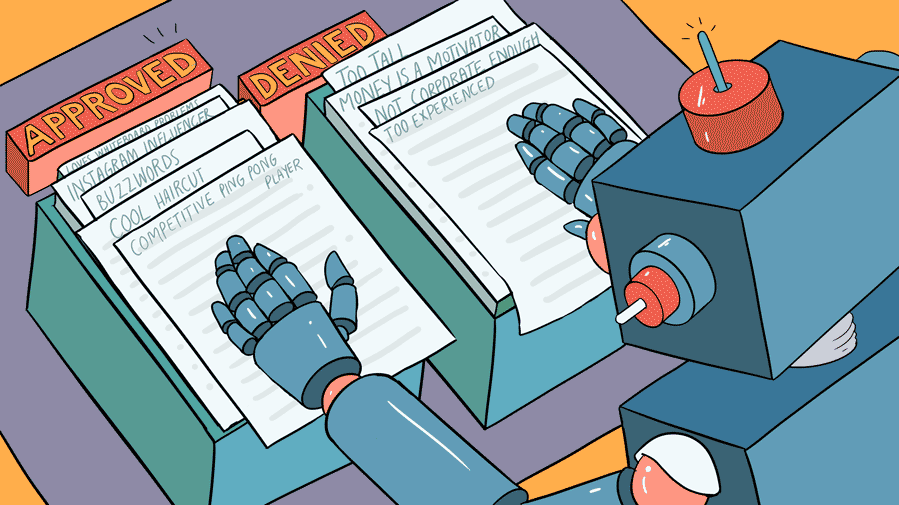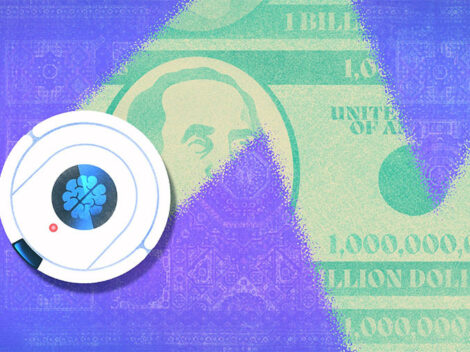In the startup world, it seems like everyone wants to either be an artificial intelligence company or throw money at one. That was true several years ago, and it still holds true today. However, the funding dynamics have changed some.
Subscribe to the Crunchbase Daily
A Crunchbase News analysis of venture funding for companies tied to AI and machine learning finds that investment in U.S. startups continues to rise. Companies in the space raised $6.62 billion so far in 2019, which puts us on pace to slightly top the 2018 total of $8.67 billion. 1
Global funding, meanwhile, is holding strong but has seen some pullback amid a broader decline in Chinese startup investment.
Where is the money going? Pretty much every major startup sector is attracting companies that rely to some degree on AI technology. Areas with the largest proportion of well-funded startups include enterprise software, fintech, robotics, autonomous driving, and biotech.
As for broad funding themes, Guarav Gupta, a partner at Lightspeed Venture Partners, sees movement away from companies pitching AI as a high-functioning replacement for things humans now do. While it’s plausible that artificially intelligent software and hardware will eventually take over our jobs, we’re not there yet.
“There’s been a whittling down of companies that were AI for XYZ that didn’t think of the market as enhancing the human rather than replacing the human,” Gupta said.
Speaking as a representative sample of one, it seems we humans could use all the enhancement we can find to get through the day and generate the rising productivity employers crave. If that’s the goal, then the AI funding numbers are apt to get a lot bigger.
Below, we look at funding totals and big rounds so far this year, and what they portend for future investment.
The Numbers
The number of funded U.S. startups that cite AI or machine learning as a key technology hasn’t been growing in the past couple years. However, the sums those companies raise is continuing to increase.
In the following chart, we look at funding levels from 2014 through this year:

For both U.S. and global totals, the really big jumps in funding occurred between 2016 and 2018. That’s when venture investors saw AI as a buzzword hit peak desirability.
“It’s become a term larger than itself,” said Rohit Sharma, a partner at True Ventures. “We see it in just about every pitch, sometimes misused.”
In the following chart we look at deal volume:

So far in 2019, we aren’t seeing the big funding increases for AI that characterized the prior two years. That said, roughly two-thirds of the way through 2019, it does look like funding is on pace to slightly exceed the 2018 totals, both for the U.S. and globally.
As for round counts, we can attribute at least two factors to the declines in 2019. The first is the typical dynamic of a maturing sector — there are now more later-stage companies raising bigger rounds, and perhaps not so many brand new upstarts. The second is reporting delays — seed rounds often don’t get disclosed until a few months after they close, particularly for stealthy startups.
Biggest Rounds
As we mentioned before, there’s no single sector that dominates AI funding. To illustrate, we lay out below five of the largest U.S. funding recipients of 2019 that fell into the Crunchbase artificial intelligence or machine learning categories.

Broadly, Gupta separates AI funding recipients into three categories. There are hardware infrastructure startups leveraging demand for new architectures to support AI and machine learning workloads. There are tools for developers and data scientists. And there are applications, running the gamut from security to autonomous driving to facial recognition to automating the help desk.
Intelligent Exits
Given that funding for AI-focused startups really started to ramp up roughly four years ago, it’s too soon to expect a lot of big exits. That said, we are on a steady roll of acquisitions.
Gupta points to last year’s sale of portfolio company Datorama, a marketing intelligence provider to Salesforce for around $800 million as one of the larger AI-centric outcomes. Other big deals include Blackberry’s acquisition of cybersecurity provider Cylance for $1.4 billion, and S&P’s purchase of analytics provider Kensho for $550 million.
Another that’s being eyed as a potential big IPO contender is Databricks, whose apache applications have driven a lot of machine learning development.
For the most part, however, the bulk of acquisitions tend to be on the smaller side, often talent acquisitions geared as snapping up high-performing teams. It makes sense, given the current state of AI. Achieving the technology’s long-term promise to replace us still requires a lot of humans.
Illustration: Li-Anne Dias.
The funding dataset is based on companies categorized by Crunchbase as having an artificial intelligence or machine learning focus. The categorization does not assess how large a role AI and machine learning technology plays in the business model.↩

Stay up to date with recent funding rounds, acquisitions, and more with the Crunchbase Daily.





![Illustration of blender with random icons and M&A buttons. [Dom Guzman]](https://news.crunchbase.com/wp-content/uploads/MA_blender-470x352.jpg)
![Illustration of a guy watering plants with a blocked hose - Global [Dom Guzman]](https://news.crunchbase.com/wp-content/uploads/quarterly-global-3-300x168.jpg)
67.1K Followers